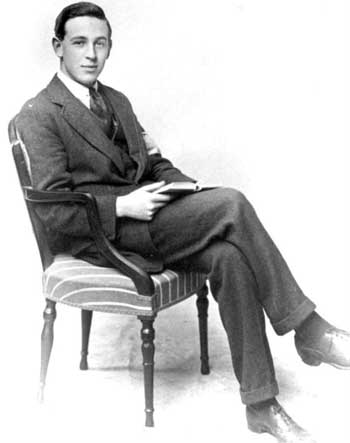Thomas Cook writes: Hi guys,
This is going to be a pretty dumb question. But… Was CS Lewis ever an atheist? I was just briefly watching a show about him, and I thought the show hinted that he was an atheist.
I looked on the net, but I only found pro Christian stuff.
Thanks,
Thomas

Edward Babinski: There are Christians who consider themselves “former atheists,” but certainly not “famous ones,” aside from Madelyn Murray OʼHairʼs son, Bill, who converted to Christianity while an adult alcoholic. But he was merely famous for being the subject of her lawsuit to remove prayer from the schools, and he was quite young and immature of mind when he was “famous.” Aside from him there are no famous atheists I can think of who have later converted to Christianity, certainly not after having penned some impressive atheist books, or been atheist leaders. While there ARE a few famous Christians, like Charles Templeton who was one of the most impressive preachers in all of North America, had the biggest Youth for Christ group, preached on alternative nights in Europe with Billy Graham during the Youth for Christ crusades in Europe, and even was chosen by the U.S. Council of Churches to represent them, the first official “Evangelist for the U.S. Council of Churches,” and had his own religious TV show in the 1950s, “Look Up and Live,” who later “walked away from God,” and who wrote a book about why he did so.
Lewis, like Josh McDowell, became “famous Christians,” but were never “famous atheists,” and in fact they didnʼt begin to speak of themselves and firmly picture themselves as “former atheists” until they became Christians. But for all of their “former atheism,” neither Lewis, like McDowell, wrote anything noteworthy on the subject prior to becoming a Christian. I seem to recall in Lewisʼ autobiography, SURPRISED BY JOY, that he had been raised Anglican, and, quote, “decided to rejoin the church” during a trip to the zoo. Lewis apparently had no firm or well thought out beliefs of his own until he became attracted to Hegalianism in college, a type of theistic philosophy. Then still later he read Chestertonʼs THE EVERLASTING MAN which is the book that Lewis credited with making him consider the historical truth of Christianity, probably since Chesterton's theme is to try and prove that in this one stance, “myth became reality,” and Lewis was a huge student of mythology, he loved myths before he ever loved the Gospels. Till his dying day, when asked to suggest books on why to become a Christian, Lewis wrote letters back to people suggesting they read Chesteronʼs book. Lewis even stole and expanded upon Chestertonʼs own “Liar, Lunatic, or Lord” argument. But in the end, neither Lewis nor Chesterton were aware of Biblical scholarship in anything but the most cursory Sunday School sense. They both loved myths and stories though.
Lewis also wrote a novelistic version of his religious journey, Lewisʼ earliest semi-autobiographical Christian work, titled, THE PILGRIMʼS REGRESS, an updated version of Bunyanʼs Christian classic, THE PILGRIMʼS PROGRESS. I donʼt believe Lewis pictured himself as an “atheist” in that book, but as a sort of Everyman, as Bunyan also pictured his main character. Though the main character in Lewisʼ novel did meet and chat with “Mr. Atheist,” I believe.
“Now that I am a Christian I do have moods in which the whole thing looks very improbable.”
—C.S. Lewis, Mere Christianity
Great admission, though Lewis then went on to add,
“…but when I was an atheist I had moods in which Christianity looked terribly probable. This rebellion of your moods against your real self is going to come anyway. That is why Faith is such a necessary virtue: unless you teach your moods where they get off, you can never be either a sound Christian or even a sound atheist, but just a creature dithering to and fro, with its beliefs really dependent on the weather and the state of its digestion. Consequently one must train the habit of Faith."
Unfortunately, Lewis merely “dithered” around with not much more than your average Sunday School knowledge of the Bible and Gospel comparisons, and believed that the Gospels were history because they “didnʼt seem like myths,” i.e., to Lewis.

